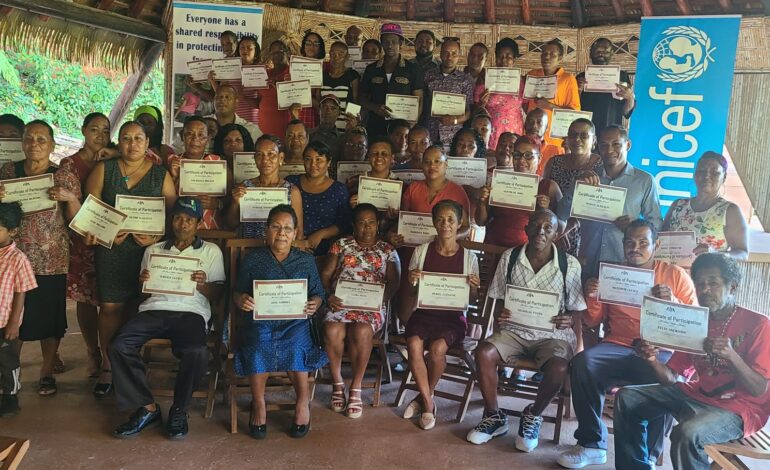
Global ceremony at FAO resonates with call for the adoption of agricultural practices that protect these tiny animals and their enormous impact on our planet
19/05/2023
Rome – The Food and Agriculture Organization of the United Nations (FAO) marked today World Bee Day 2023 with a global ceremony in which participants emphasized the importance of promoting sustainable agricultural practices that respect the vital role pollinators play in nature.
Pollination is essential for the maintenance of plant biodiversity, the survival of our ecosystems. About 75 percent of the world’s crops – which produce fruits and other seeds for human consumption – depend, at least in part, on pollinators, including bees. Under the theme “Bee engaged in pollinator-friendly agricultural production”, World Bee Day 2023 draws attention to the threats endangering these insects and the need to address them.
“Protecting bees and other pollinators is essential to guarantee agricultural production, food security, ecosystems restoration and at large plant health ,” FAO Director-General QU Dongyu said in his opening remarks at the event held on the eve of the official day, which annually falls on 20 May as designated by the United Nations. Pollinator-friendly practices “include crop rotation and diversity, reducing the use of pesticides, and restoring and protecting the habitat of pollinators,” Qu added, noting that “even the adoption of precision agriculture tools and innovation can protect bees. Using technology and data to optimize fertilizer and irrigation practices can reduce excessive nutrients and chemicals in water, which harm pollinators and their habitats.”
“World Bee Day has contributed significantly to raising awareness of the importance of bees and other pollinators and to promoting international cooperation to protect them,” said Nataša Pirc Musar, President of the Republic of Slovenia, the country to initiate the establishment of a World Bee Day in 2016 at the FAO Regional Conference for Europe. “Slovenia alone has co-created more than 300 pollinator projects with partners on all continents. Pollinators have made their way into many more school curricula, political debates, research agendas, business plans and agricultural practices,” she added.
Participants at today’s event included the Permanent Representative of the Republic of Uganda to FAO, Elizabeth Paula Napeyok, and the Permanent Representative of the People’s Republic of China to FAO, GUANG Defu.
In a panel discussion, bee and pollinator experts from around the world highlighted how unsustainable agriculture and pesticide abuse contribute to bees’ and other pollinators’ reduced access to food and nesting sites, exposing them to harmful chemicals that weaken their immune systems, sometimes going so far as to kill them. They also noted how intensive monoculture production often leads to the elimination of natural areas rich in flowering plants, which are replaced by a single large crop, making significant damage to biodiversity and ecosystems.
FAO’s commitment to protecting bees and pollinators
On 18 May, FAO hosted and co-organized together with the World Organization for Animal Health (WOAH), Apimondia, and the Istituto Zooprofilattico Sperimentale del Lazio e della Toscana the second International Symposium on Biosecurity in Beekeeping, bringing participants up to date on the latest developments in bee biosecurity and the initiatives that the international organizations involved are applying in different areas of the world to ensure bee health.
FAO is committed to promoting policies that support biological plant pest control and limit pesticide use, through the Global Action on Pollination Services for Sustainable Agriculture, aiming to build greater habitat diversity in agricultural and urban environments. Through new technologies such as TECA – an online platform that gathers successful agricultural technologies and practices – , FAO is working to foster knowledge exchange and sustainable rural transformation, contributing to the achievement of the Sustainable Development Goals (SDGs). Launched by FAO in 2002 and managed by FAO’s Research and Extension Unit, the TECA platform addresses the need for a systematic and user-friendly online repository of technologies, practices, and innovations on family farming.






